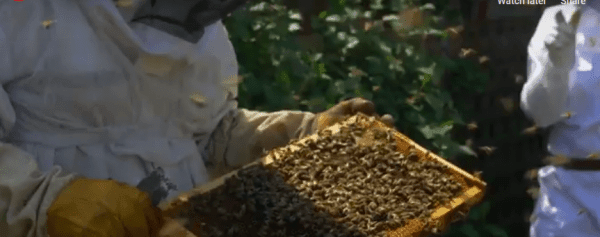Honey from urban bees can tell us how clean a city is and help pinpoint the sources of environmental pollutants such as lead, new University of British Columbia research has found.
In a study published today in Nature Sustainability, scientists from UBC’s Pacific Centre for Isotopic and Geochemical Research (PCIGR) analyzed honey from urban beehives in six Metro Vancouver neighbourhoods. They tested for minuscule levels of lead, zinc, copper and other elements and carried out lead isotope analyses – akin to fingerprinting – to identify where the lead came from.
“The good news is that the chemical composition of honey in Vancouver reflects its environment and is extremely clean,” said Kate E. Smith, lead author of the study and PhD candidate at PCIGR. “We also found that the concentration of elements increased the closer you got to downtown Vancouver, and by fingerprinting the lead we can tell it largely comes from manmade sources.”
Continue reading at University of British Columbia.
Image via University of British Columbia.


